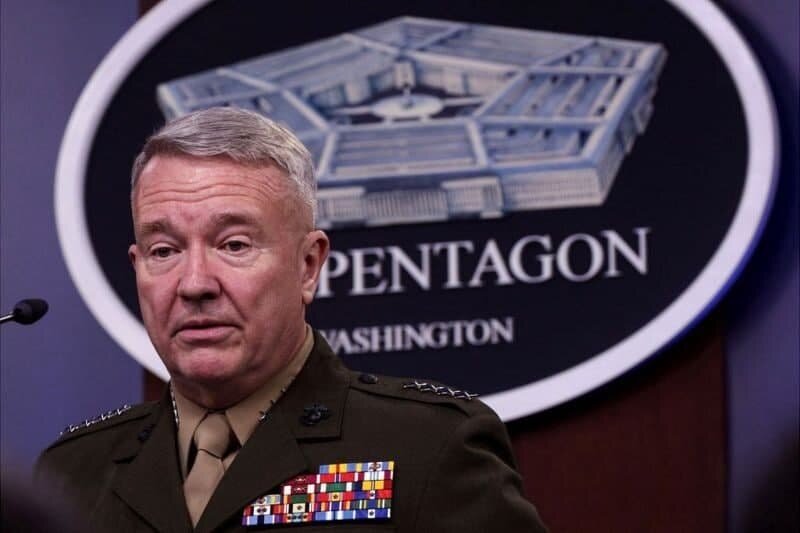CENTCOM chief reveals Washington’s trembling as assassination anniversary of General Soleimani nears

TEHRAN - The commander of the U.S. forces in West Asia has revealed Washington’s fear of Iran's reprisal on the anniversary of the assassination of Lieutenant General Qassem Soleimani, Iran’s top anti-terror military official, in a U.S. drone strike.
"We are prepared to defend ourselves, our friends, and partners in the region, and we're prepared to react if necessary," said General Kenneth McKenzie, head of the U.S. Central Command (CENTCOM) that has been designated by the Islamic Republic as a terrorist entity.
General Soleimani was assassinated in a cowardly terrorist attack by the U.S. near Baghdad’ international airport on January 3 while he was on an official tour of Iraq.
"My assessment is we are in a very good position and we'll be prepared for anything the Iranians or their proxies acting for them might choose to do," he noted, according to Press TV.
McKenzie made the remarks while addressing a small group of journalists during a tour of the region on Sunday. The exact whereabouts, from which McKenzie made such remarks, was not disclosed.
His tour was also not announced in advance. Similarly, visits last week by General Mark Milley, chairman of the U.S. Joint Chiefs of Staff, to a whole host of regional countries were kept secret until he had left the region.
The AFP news agency described the secrecy surrounding the regional stopovers by the military top brass as “an apparent sign of U.S. military leaders' concerns about Iranian intentions” in the run-up to the anniversary of the assassination.
General Soleimani was considered a legendary commander in the war against terrorists.
“His military acumen, ability to devise asymmetrical anti-terrorism warfare strategies, and bringing together unruly groups to work together were unmatched,” Professor Nader Entessar tells the Tehran Times.
Abu Mahdi al-Muhandis, deputy commander of Iraq’s Popular Mobilization Units (PMU) or Hashd al-Sha’abi, was also martyred along with their companions when their convoy was targeted by a U.S. drone at Baghdad airport.
Both commanders enjoyed deep reverence among Muslim nations, throughout West Asia and beyond, over their endeavors in eliminating the U.S.-sponsored Daesh terrorist group in the region, particularly in Iraq and Syria.
Leader of the Islamic Revolution Ayatollah Ali Khamenei warned soon after the atrocity about a pending “harsh revenge.”
The IRGC fired volleys of ballistic missiles at a U.S. military base in western Iraq on January 8. According to the U.S. Defense Department, more than 110 American forces suffered “traumatic brain injuries” during the missile attack. The IRGC, however, says Washington uses the term to mask the number of the Americans, who perished during the retaliation.
Iran has also issued an arrest warrant and asked Interpol for help in detaining U.S. President Donald Trump, who ordered the assassination, and several other U.S. military and political leaders behind the strike.
Most recently, Ayatollah Khamenei said revenge for the Iranian general was certain and would be exacted at the right time.
Still commenting on the issue of the U.S.’s wariness about the potential of more Iranian counterattacks, McKenzie said, "I talk to my commanders about it every day and I think we will be ready."
PA/PA
